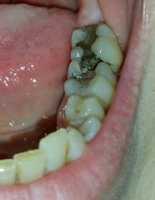Metagenomic Sequencing Enhanced Diagnosis of Meningitis and Encephalitis Infections
Does Genetic Information Encourage Doctors to Switch Anticoagulation Medications?
Why Do Some People Get a Dog?
 Tove Fall PhD
Senior author of the study
Associate Professor in Epidemiology
Department of Medical Sciences and the Science for Life Laboratory
Uppsala University
MedicalResearch.com: What is the background for this study? What are the main findings?
Response: Dog ownership is common in the Western society but little is known about what actually makes people get a dog.
We conducted a twin study to understand whether the genetic make-up has an influence on this choice. We found that more than 50% of the differences in dog ownership is explained by genetic variants. (more…)
Tove Fall PhD
Senior author of the study
Associate Professor in Epidemiology
Department of Medical Sciences and the Science for Life Laboratory
Uppsala University
MedicalResearch.com: What is the background for this study? What are the main findings?
Response: Dog ownership is common in the Western society but little is known about what actually makes people get a dog.
We conducted a twin study to understand whether the genetic make-up has an influence on this choice. We found that more than 50% of the differences in dog ownership is explained by genetic variants. (more…)Genes Determine Why We Don’t All Smell the Same
Machine Learning Can Analyze Entire Transcriptome To Improve Diagnosis of Difficult Cancers
 Jasleen Grewal, BSc.
Genome Sciences Centre
British Columbia Cancer Research Centre
Vancouver, British Columbia, Canada
MedicalResearch.com: What is the background for this study?
Response: Cancer diagnosis requires manual analysis of tissue appearance, histology, and protein expression. However, there are certain types of cancers, known as cancers of unknown primary, that are difficult to diagnose based purely on their appearance and a small set of proteins. In our precision medicine oncogenomics program, we needed an accurate approach to confirm diagnosis of biopsied samples and determine candidate tumour types for where the primary site of the cancer was uncertain. We developed a machine learning approach, trained on the gene expression data of over 10,688 individual tumours and healthy tissues, that has been able to achieve this task with high accuracy.
Genome sequencing offers a high-resolution view of the biological landscape of cancers. RNA-Seq in particular quantifies how much each gene is expressed in a given sample. In this study, we used the entire transcriptome, spanning 17,688 genes in the human genome, to train a machine learning method for cancer diagnosis. The resultant method, SCOPE, takes in the entire transcriptome and outputs an interpretable confidence score from across a set of 40 different cancer types and 26 healthy tissues. (more…)
Jasleen Grewal, BSc.
Genome Sciences Centre
British Columbia Cancer Research Centre
Vancouver, British Columbia, Canada
MedicalResearch.com: What is the background for this study?
Response: Cancer diagnosis requires manual analysis of tissue appearance, histology, and protein expression. However, there are certain types of cancers, known as cancers of unknown primary, that are difficult to diagnose based purely on their appearance and a small set of proteins. In our precision medicine oncogenomics program, we needed an accurate approach to confirm diagnosis of biopsied samples and determine candidate tumour types for where the primary site of the cancer was uncertain. We developed a machine learning approach, trained on the gene expression data of over 10,688 individual tumours and healthy tissues, that has been able to achieve this task with high accuracy.
Genome sequencing offers a high-resolution view of the biological landscape of cancers. RNA-Seq in particular quantifies how much each gene is expressed in a given sample. In this study, we used the entire transcriptome, spanning 17,688 genes in the human genome, to train a machine learning method for cancer diagnosis. The resultant method, SCOPE, takes in the entire transcriptome and outputs an interpretable confidence score from across a set of 40 different cancer types and 26 healthy tissues. (more…)Nature vs Nurture? Environment Play a Bigger Role in Dental Cavities
Genetic Studies Can Help Determine How Low LDL Should Go With Treatment
Gene Linked to Colon Cancer in Younger Patients Identified
DNA Copy Number Variants Linked to Increased Risk of Depression
RNA Genetic Testing Improves Analysis of Hereditary Cancer Genes
 Rachid Karam, PhD
Director, Ambry Translational Genomics Lab
Ambry Genetics
MedicalResearch.com: What is the background for this study?
Response: DNA genetic testing (DGT) for hereditary cancer genes is now a well accepted clinical practice; however, the interpretation of DNA variation remains a challenge to laboratories and medical providers.
RNA genetic testing (RGT) as a supplement to DGT is a means to clarify the clinical actionability of variants in hereditary cancer genes, improving our ability to accurately apply known strategies for cancer risk reduction.
(more…)
Rachid Karam, PhD
Director, Ambry Translational Genomics Lab
Ambry Genetics
MedicalResearch.com: What is the background for this study?
Response: DNA genetic testing (DGT) for hereditary cancer genes is now a well accepted clinical practice; however, the interpretation of DNA variation remains a challenge to laboratories and medical providers.
RNA genetic testing (RGT) as a supplement to DGT is a means to clarify the clinical actionability of variants in hereditary cancer genes, improving our ability to accurately apply known strategies for cancer risk reduction.
(more…)Bacteria in Intestinal Microbiome Freely Transfer Genes To Each Other
Epilepsy: Genetic Testing Should Include Parental Sampling
Genes Linked to Alcohol Use Disorder Identified
Insulin Resistance Characterizes a Subset of Schizophrenia Patients
Pathogenic RET Variants Occur at Higher Prevalence Than Previously Recognized
Genetic Mutation May Predict Outcomes of Prostate Cancer Treated With Androgen-Deprivation Therapy or Abiraterone
Genetics Could Explain Smokers’ Preference for Menthol Cigarettes
Mutations Linked to Scarring Hair Loss in African American Women Identified
Genes Help Determine Whether You Are Shaped Like an Apple or Pear
12 Genetic Loci Associated with Human Healthspan
Link Between Apolipoprotein E and Brain Hemorrhage Varies by Ethnicity
Polygenic Risk Scores Linked to Intelligence, ADHD and Brain Findings
Tinnitus: Study of Adoptees Suggests Genetic Predisposition
Paternal Grandfather’s Access to Food Predicts All-Cause and Cancer Mortality in Grandsons
Some Anti-Tumor Drugs May Promote Delayed Aggressive Cancers
MedicalResearch.comInterview with:
Alexandra Avgustinova PhD
Postdoctoral fellow at the Institute for Research in Biomedicine (IRBBarcelona)

MedicalResearch.com: What is the background for this study?
Response: The basis of this study was the strong association between closed chromatin and high mutation rate reported several years ago. We were surprised to see this observation being widely interpreted as a causal association, as it was largely based on correlative studies without experimental backing. Therefore we decided to experimentally test for the first time whether indeed altering chromatin opening would affect mutation rate or distribution within tumours.
MedicalResearch.com: What are the main findings?
Response: We found that, despite significantly increasing chromatin opening, loss of the histone methyltransferase G9a did not have any major influence on the mutation rate or distribution within cutaneous squamous cell carcinomas. These results demonstrate that chromatin opening does not play a major role in determining the mutation rate within tumours, and we speculate that other, confounded factors (e.g. replication timing or H3K36me3 levels) are likely causal for the observed association. This, however, remains to be proven experimentally.
Another major conclusion of our study was that although tumour initiation was delayed and tumour burden decreased in the absence of G9a, the tumours that did develop were highly aggressive due to selection for more aggressive tumour clones. This finding was contrary to many published reports suggesting G9a as a good candidate for clinical targeting, highlighting the need for long-term follow-up in pre-clinical studies.
(more…)Using of Big Data to Estimate Prevalence of Defective DNA Repair Variants in the US
MedicalResearch.com Interview with:

Kenneth H. Kraemer,M.D.
Chief DNA Repair Section
Laboratory of Cancer Biology and Genetics, Center for Cancer Research
National Cancer Institute
MedicalResearch.com: What is the background for this study?
Response: At the National Cancer Institute, we have been examining patients with xeroderma pigmentosum (XP), a rare, recessively inherited, cancer-prone disease for many years. Therefore, with the increasing use of exome sequencing, we decided to see how closely"big data" corresponded with our clinical observations.
(more…)
Genome Analysis Can Overestimate Incidence of Chronic Kidney Disease
Eczema Determined by Genetics or Environment?
What we see it that eczema is determined by genetics and with no know external factors causing or deteriorating the...


























